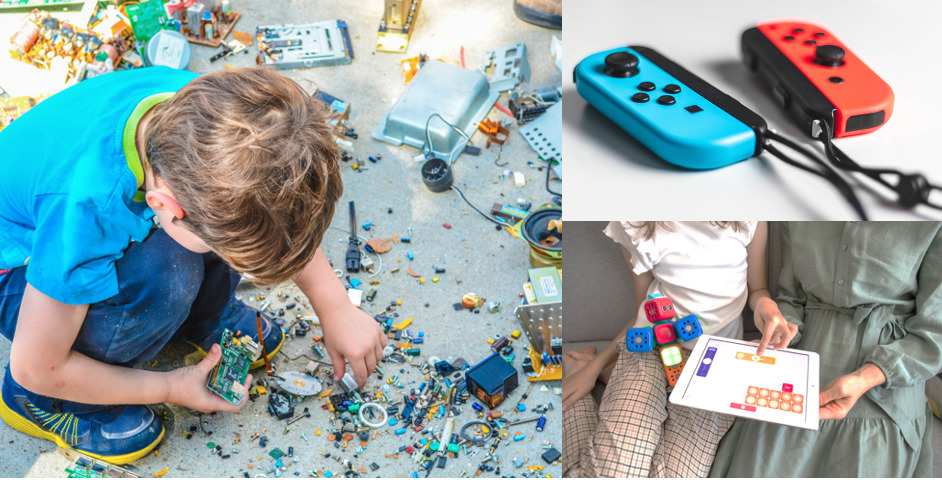Sarah Wainwright
Let’s break it down! Video games span from a simple, single player card game to massive multiplayer online games with virtual universes, where players interact and deal with transactions in the form of points, game enhancements and money. Video games are played on computers, laptops, hand-held devices, game consoles and increasingly on phones and tablets. One of the most popular multiplayer online games is ‘Fortnight Battle Royale’ boasting 40 million players world-wide (Webroot.Inc., 2021).
A Snapshot on Gaming Courtesy of Digital Australia, 2020:
- Over 90% of Australian households own a gaming device
- 67% of Australians play video games
- 46% of gamers are female (and the fastest growing group of gamers)
- 34 is average age of the Australian gamer
- 78% of players are aged 18 and over
For children aged 8-17 according to the eSafety Commissioner, 2021:
- 81% have played an online game
- 64% have played an online multiplayer game
- 52% have played with strangers
- 34% have made an in-game purchase
- 17% have experienced abuse or bullying while playing network games
Online gaming is a frequent topic of conversation and area of concern for parents. Let’s briefly examine some of the downsides of online gaming such as, children accessing age-inappropriate content, difficulty regulating the amount of time spent gaming, decreased time spent with friends, outdoors or playing sport, and tiredness and sleep disturbances. The negatives are worthy of parental attention and concern, however, the broader benefits of online gaming, such as interaction with friends online and digital fluency and citizenship, are increasingly important in children’s lives. I met Alex Merton-McCann online over shared interests on social media and an offline friendship developed!
As McAfee’s Cyber Safety Ambassador for Australia and New Zealand, here is Alex’s take on Online Gaming:
“As a mum of 4 and Cyber Safety Ambassador, I am very familiar with the risks and negatives associated with online gaming, but online gaming is not all bad news. In fact, it can provide quite the opportunity for our kids to develop their digital citizenship skills – particularly if we stay closely involved. Let’s just take a moment to think about the digital citizenship lessons that can be learned from playing an online game such as ‘Among Us.’ ‘Among Us’ is an online multi-player game that’s a little like the old-school party game ‘Murder in the Dark’ but set in a spaceship. Check out my blogpost here for further details. When playing ‘Among Us,’ participants need to learn how to function as part of a team, how to positively interact with teammates, how to decide whether to trust someone (in the game you are either a crew member or an imposter) and how to problem solve. These skills are very transferable to the offline world too.”
In order for online gaming to be a positive learning experience, it is essential that we help prepare our kids for some of the risks, and as First-Generation Digital Parents, this can be tough! Many of us are learning on the job. So, let me share with you my top tips to help you ensure your kids are as safe as possible when gaming online:
- Start Conversations Early
If you start talking about ways to game safely early, it will make your job easier as your children get older. If your kids are young, start with simple rules like: “don’t open messages from people you don’t know” and “decline friend requests from strangers.” You want online safety to be part of normal behaviour.
2. Be Careful What You Click
Most children have been using digital activities for entertainment from an early age, desensitising them to the potential risks of online behaviour. Cybercriminals can use the popularity of video games to entice gamers to click on potentially malicious links. Encourage them to think about what they are clicking on and ensure that it’s from a reliable source.
3. Control How Long They Play
Set a good example by minimising your use of devices around the home. Why not invest in parental control software to set time limits on your child’s device usage? Not only will you be reducing their exposure to potentially malicious or inappropriate websites but they will probably get more homework done!
4. Avoid Malicious Links
If your children are searching online for gaming tips or new games to download, a free tool like McAfee’s Webadvisor can help them avoid dangerous websites and links, and will warn them if they do accidentally click on something malicious.
5. Be Protected
No matter what anyone in the family is doing online, invest in a security product like McAfee Total Protection that can help keep connected devices safe from malware. And just like any PC application, be sure to keep security software updated.
So, let your kids keep playing because online gaming can provide a great opportunity to develop valuable social skills but please commit to working with your kids to minimise the risks. Introduce time limits, ensure their games are suitable and teach them how to navigate the challenges. Finally, according to The NSW Department of Education, the benefits of online gaming for young people include:
- concentration, higher-order thinking, problem solving and persistence
- many games require cooperation, team-work and scenario based learning
- most games require strategy to understand and working within rules
- opportunities to practice communication and conflict resolution skills
Sarah Wainwright BSc (Psychology), Postgraduate Diploma (Psychology). Writer, Mentor-Tutor, Wife and Mother of 4. Sarah is a Sydney-based parenting expert and shares her experience and observations on Instagram @_parentingtips_












